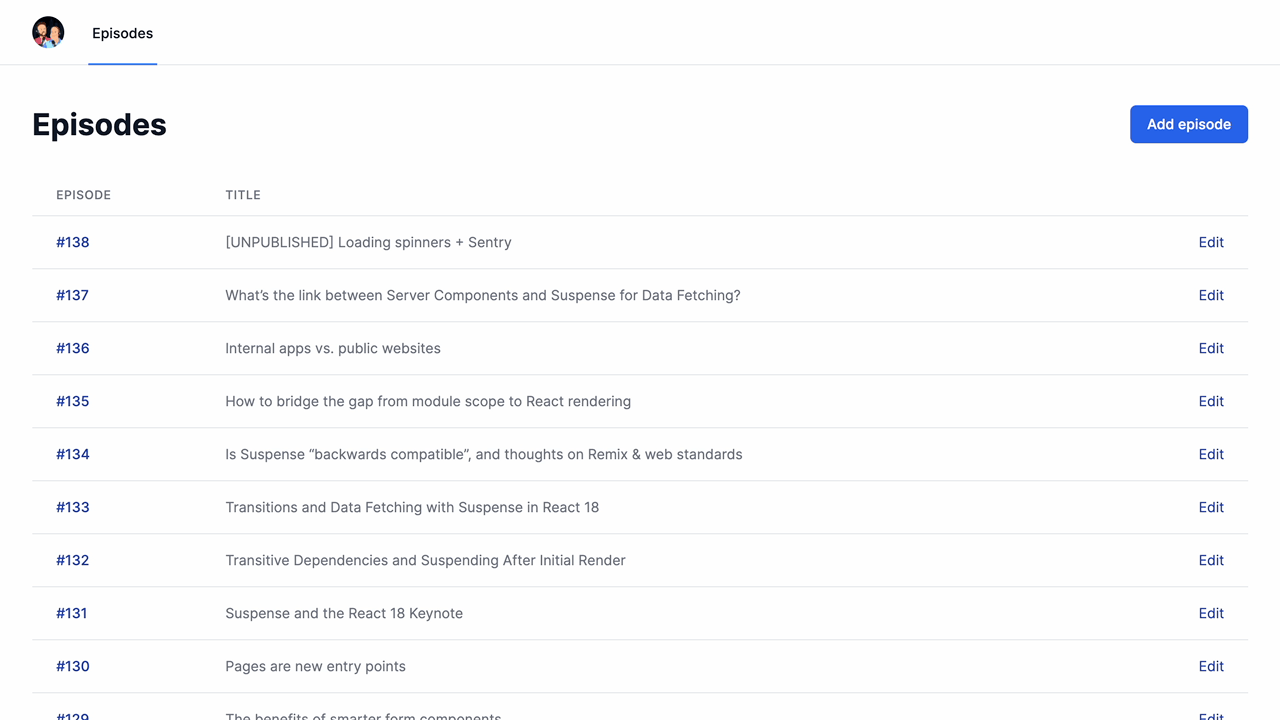
Security News
ESLint Adds Official Support for Linting HTML
ESLint now supports HTML linting with 48 new rules, expanding its language plugin system to cover more of the modern web development stack.
next-deploy-notifications
Advanced tools
This library lets your users know when you've deployed a new version of your Next.js application.
This library lets your users know when you've deployed a new version of your Next.js application.

import { useHasNewDeploy } from "next-deploy-notifications";
function App() {
let { hasNewDeploy } = useHasNewDeploy();
return (
<div>
<main>Your app</main>
{hasNewDeploy && (
<Notification>
New version available!
<button onClick={() => window.location.reload()}>Refresh</button>
</Notification>
)}
</div>
);
}
npm install next-deploy-notifications
# or
yarn add next-deploy-notifications
You'll first need to create a new API route in order for this library to work correctly. Paste the following into pages/api/has-new-deploy.js.
// pages/api/has-new-deploy.js
export { APIRoute as default } from "next-deploy-notifications/api";
The useHasNewDeploy hook will tell you when a new version of your application has been deployed. This hook returns a hasNewDeploy property that's true whenever there's a new deploy.
import { useHasNewDeploy } from "next-deploy-notifications";
function Page() {
let { hasNewDeploy } = useHasNewDeploy();
return hasNewDeploy && <div>A new deploy is available!</div>;
}
The useHasNewDeploy hook will check for a new version of your application every 30 seconds. It will suspend checking for new versions if the application window is not focused by the user.
When running in development this library will treat the current git commit as your application's version. If the latest git commit sha changes then useHasNewDeploy hook will react as if there was a new deploy.
To trigger a new commit without checking in code, you can use the following command:
git commit -m "Trigger useHasNewDeploy!" --allow-empty
It's worth noting that it can take up to 30 seconds for the application to see the git commit. You'll also need to make sure the application window is focused.
This library works out of the box with the following hosting providers:
Vercel
Note: Make sure you're application has "Automatically expose System Environment Variables" checked. This can be found in the Vercel dashboard under Settings > Environment variables.
Render
If your web host is not listed above you can add a custom version function in order to make this library work properly.
// pages/api/has-new-deploy.js
import { APIRoute } from "next-deploy-notifications/api";
export APIRoute.configure({
// Return your app's version here.
version: () => "123"
})
The version function should return the current version of the application as a string. You can read from process.env, the file system, or even make network calls here.
If needed, version can be an async function or return a promise.
Whenever the value returned by version changes your application's users will be notified of a new deploy.
Please open a new issue if you are adding a custom version function for a well known web host. I'd love to make common hosts supported by default!
FAQs
This library lets your users know when you've deployed a new version of your Next.js application.
We found that next-deploy-notifications demonstrated a not healthy version release cadence and project activity because the last version was released a year ago. It has 1 open source maintainer collaborating on the project.
Did you know?

Socket for GitHub automatically highlights issues in each pull request and monitors the health of all your open source dependencies. Discover the contents of your packages and block harmful activity before you install or update your dependencies.

Security News
ESLint now supports HTML linting with 48 new rules, expanding its language plugin system to cover more of the modern web development stack.

Security News
CISA is discontinuing official RSS support for KEV and cybersecurity alerts, shifting updates to email and social media, disrupting automation workflows.

Security News
The MCP community is launching an official registry to standardize AI tool discovery and let agents dynamically find and install MCP servers.